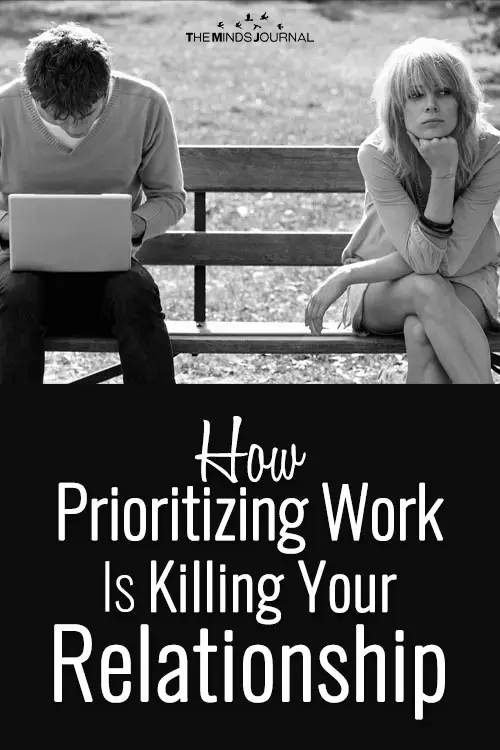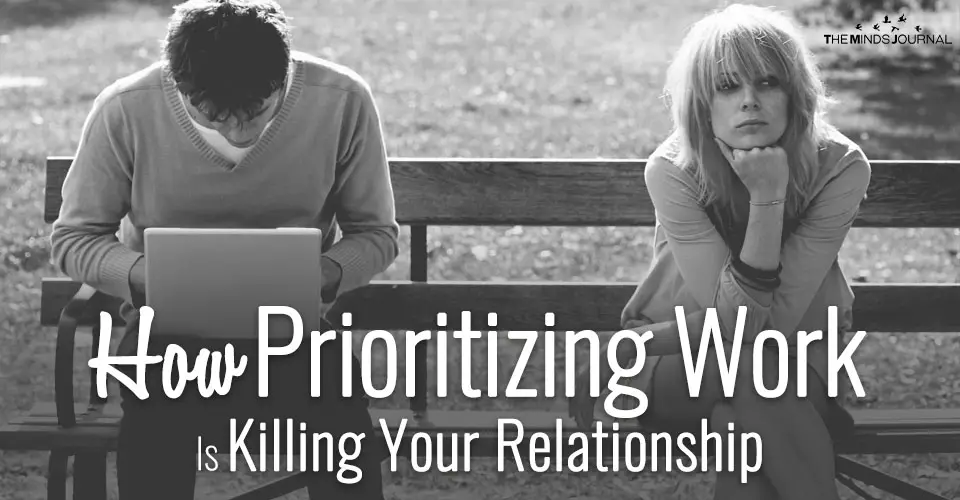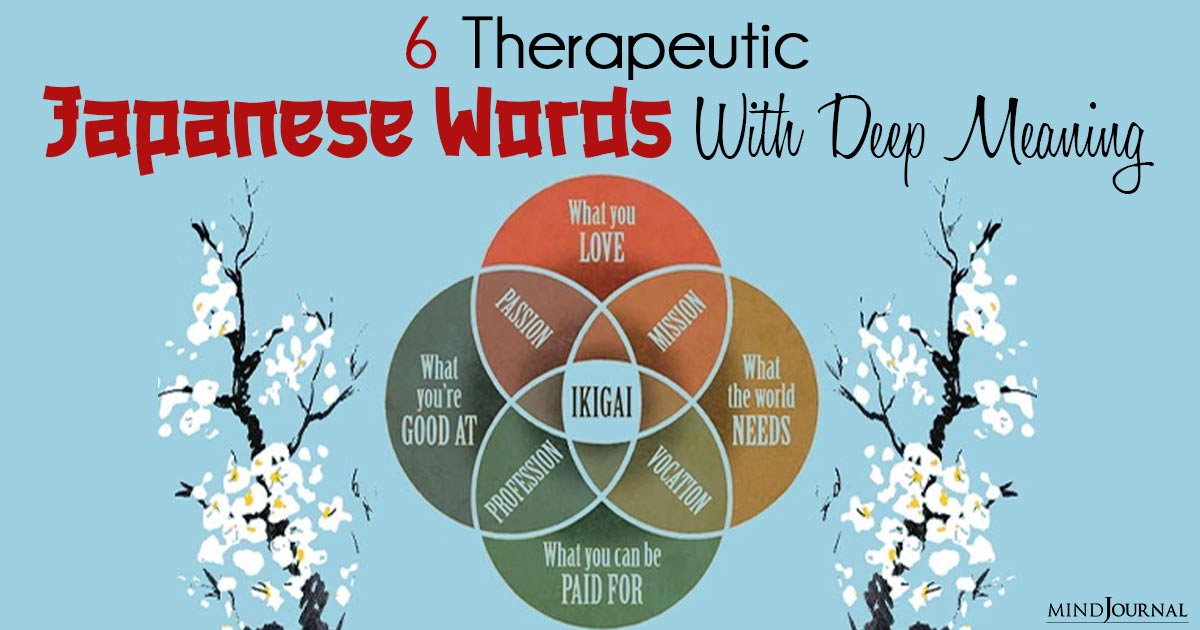How Prioritizing Work Is Killing Your Relationship: Are you a workaholic? Does your partner complain that you are always working? Is your work killing your relationship? Workaholism or work addiction can be a silent relationship killer. It’s one thing to be passionate about your work, but when you ignore your partner for your work, it’s time to take notice. Prioritizing work is not just killing your relationship, but it can also adversely affect your career as well.
“Workaholics aren’t heroes. They don’t save the day, they just use it up. The real hero is home because she figured out a faster way.” – Jason Fried
The invisible addiction
It’s often referred to as ‘the invisible addiction’ because it flies under the radar. Unlike alcoholism, drug addiction, or hoarding, this addiction is not only almost impossible for an outsider to recognize, but it’s viewed by most of the population as being valuable, even, worthy of admiration. And it’s rewarded with praise, money, and a variety of other benefits. There’s only one problem with it: it’s a killer. It’s been known to destroy health (physical and mental), well-being, pleasure, and relationships. It’s a four-letter word that rhymes with a jerk. And starts with ‘w’.
The term ‘workaholic’ refers to the tendency to be obsessed with or over-concerned about work to the degree that one invests so much time and effort working and/or thinking and talking about work that other important areas of life (like relationships) are neglected or impaired.
Like food addiction, workaholism isn’t something that we can just kick cold turkey or even gradually. Meeting our material and physical needs depend upon our ability to generate income and for most of us that involve work. Although doing so isn’t easy, it is possible to quit drinking or quit taking drugs. We can’t, however, quit working, that is unless we are independently wealthy, which most of us are not. And even if we are, work provides us with more than money. For most of us, it gives our lives with a sense of meaning, purpose, and usefulness that enhances our self-esteem and wellbeing.
Having meaningful work is one of the best ways to diminish feelings of depression and minimize the likelihood of getting the blues in the future.
“The quality of your life is the quality of your relationships.” – Anthony Robbins
When too large a part of our motivation to work is driven by a desire to fill psychological needs, we can become blind to the degree to which we may be compromising or diminishing our overall quality of life in order to meet emotional needs.
Relationships are a source of fulfillment
There is a domain in our life that is more geared to the fulfillment of our emotional needs and that domain is, you guessed it, relationships. Unfortunately, when much of our time and energy are consumed with work, relationships often tend to be neglected, and consequently, we lose access to this very vital source of fulfillment. It’s ironic that in opting to overly invest in work, we lose touch with something potentially far more enriching.
Ironic, but not surprising, since it’s human nature to choose commitments that we feel more skilled in over those in which we feel ourselves to be less competent. Like many men, in my younger days, I was preoccupied with work, partly because with three young kids, I felt obligated to stay on track in regard to my work in order to keep the wolf away from the door. I gave an increasing percentage of my time and energy to work, not just because I wanted to keep bringing home the bacon or in our case, the tofu (it was the 80’s) but because work was something that I felt competent in, could do pretty well and got a lot of satisfaction from. Parenting and husbanding, on the other hand, was far less fulfilling, kind of boring, and something that I felt myself to be inept at, so I opted to have my contribution to the family take the form of a paycheck, rather than more of my presence.
This decision led to predictable results: unhappy marital partner (Linda), unhappy kids, unhappy self, since it’s hard to be happy when those whom you love aren’t, and a hardcore work addiction which turned out to be about as difficult to kick as heroin. As it turned out I did go cold turkey and fortunately, Linda was willing and able to trade roles and responsibilities with me while I got to find out first hand what the saying “a woman’s (parent’s) work is never done” really means.
“Relationships are not about ‘I want this’ or ‘I want that’, they are about two people caring for the other’s desires.” – unknown
The job at home is harder
I got to see what I had been avoiding by feeding my addiction. In doing so, I got to really connect on a deep level with Linda, the kids, and myself. I also got to experience and appreciate what is involved in being a full-time child-caregiver. I saw that work, for me anyway, was a vacation by comparison. I became completely disabused of my illusion that the unpaid job that I had inside of the home side was a hell of a lot harder and more demanding than the paid job that I had outside of the home was easier than the work side. On the plus side, I got to see how in being home and spending more time with the kids I found a different and in many ways more satisfying kind of fulfillment than the short-term bursts of ego-pleasure that I got from my outside job.
Leaving a job or trading roles isn’t an option for most of us these days. We were a one-income family when I quit work and became a full-time householder for a year. That year was 1987 and things were different thirty years ago. These days two-income couples are the norm and most families can’t get by with just one. Consequently, the pressure to work hard and demonstrate one’s productivity and indispensability is strong. Perhaps that is one of the factors that put America at the bottom of the list of countries that provide paid vacations, which includes every developed nation except for the United States.
The U.S. is the only country that does not by law require employers to provide paid vacations. While 75% of American employees do receive some paid vacation time, they use only 51% of what is available, a smaller percentage than any other developed country. The European Union requires all countries to provide a minimum of 20 paid vacation days annually, and some, provide much more. France and Finland require at least 30.
The average amount of vacation days received by Americans annually is 10. Notably, according to a study conducted by the Families and Work Institute, “Having paid vacation time bodes well for personal health and well-being as well as job satisfaction and intent to stay in one’s job.”
It sounds like a win-win all around. So why aren’t we as individuals and as a society acting accordingly? Good question. I’d love to answer it but I’ve got to get back to work.
Here’s a helpful video from the globally renowned author, and life coach Tony Robbins that you may find interesting:
Find the work-relationship balance
“Never let a problem to be solved become more important than a person to be loved.” – Barbara Johnson
Balancing your personal relationship and a demanding career can surely be a challenge. But the fact is millions of people are doing just this around the world, often more effectively than most others. Although your partner understands your passion and drives for your work, in the long run, it can lead to involuntary anger, frustration, and emotional pain. There is no doubt that if you prioritize your work more than your relationship, your relationship will come to an end, sooner than later.
It’s a great feeling to take pride in your work, especially when your performance is officially appreciated and awarded. But your life is more than your work and your relationship is more than the paycheck that you bring home so proudly. Even though you may still love and care for your partner a lot, not paying enough attention to them can have dire consequences for your relationship.
You need to show your partner that they mean more to you than your career, regardless of how passionate you are about your work. When you heal your relationship with the love, understanding, and attention it needs, when you take efforts to nurture it, you will realize how much value your partner can add to your career. Their support can bring a world of difference to the work you feel so passionate about.
Every romantic relationship is like a beautiful garden that requires regular, consistent and balanced tending to flourish. Balance your time in a way that you can give enough to your relationship, your work and yourself.
Make some effort and connect with your partner.
Because money can’t buy you, love.
Linda and Charlie Bloom are excited to announce the release of their third book, Happily Ever After . . . and 39 Other Myths about Love: Breaking Through to the Relationship of Your Dreams.
We’re giving away 3 e-books absolutely free of charge. The Ten Biggest Things We’ve Learned Since We Got Married, Your Guide to Great Sex, and An End to Arguing.
To receive them just click here:
How Prioritizing Work Is Killing Your Relationship
Written by Linda and Charlie Bloom
Originally appeared in Psychology today
You may also like:
Work-Life Balance: How To Not Let Your Career Kill Your Love Life
Struggling with Your Work-Life Balance? Here’s How to Improve it
How Repeated Conflicts Destroy Love in Relationships
The Hidden Intimacy Killer Damaging Your Relationship
How Technology Is Ruining Marriage And Relationships









Leave a Reply
You must be logged in to post a comment.